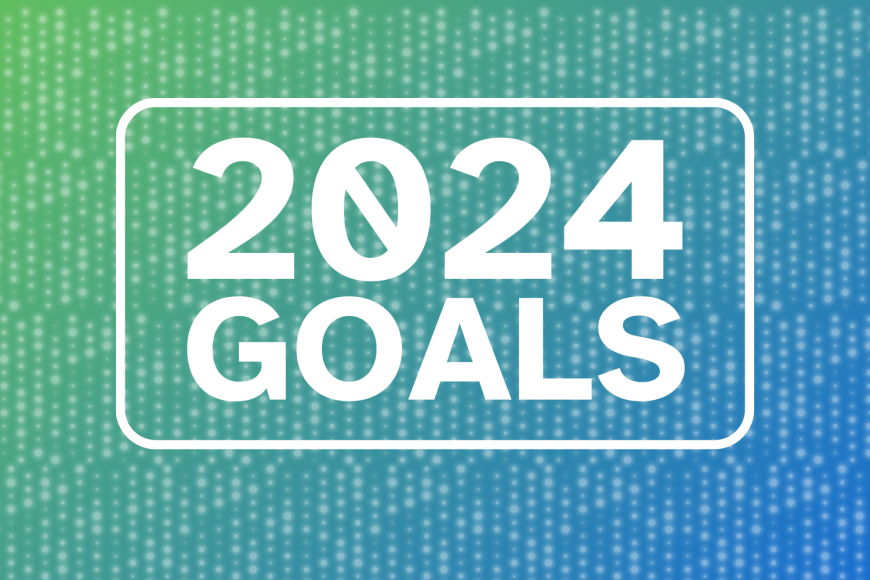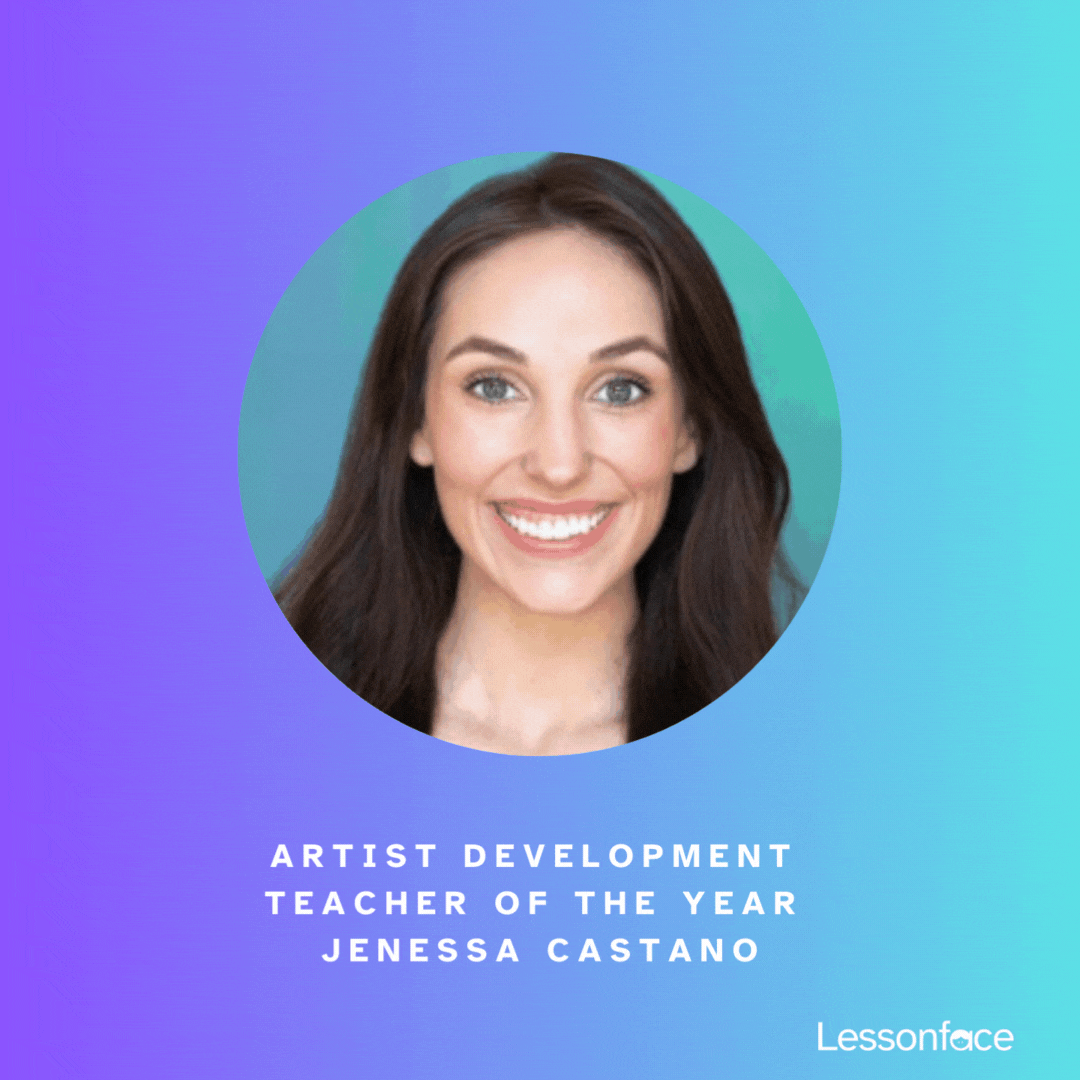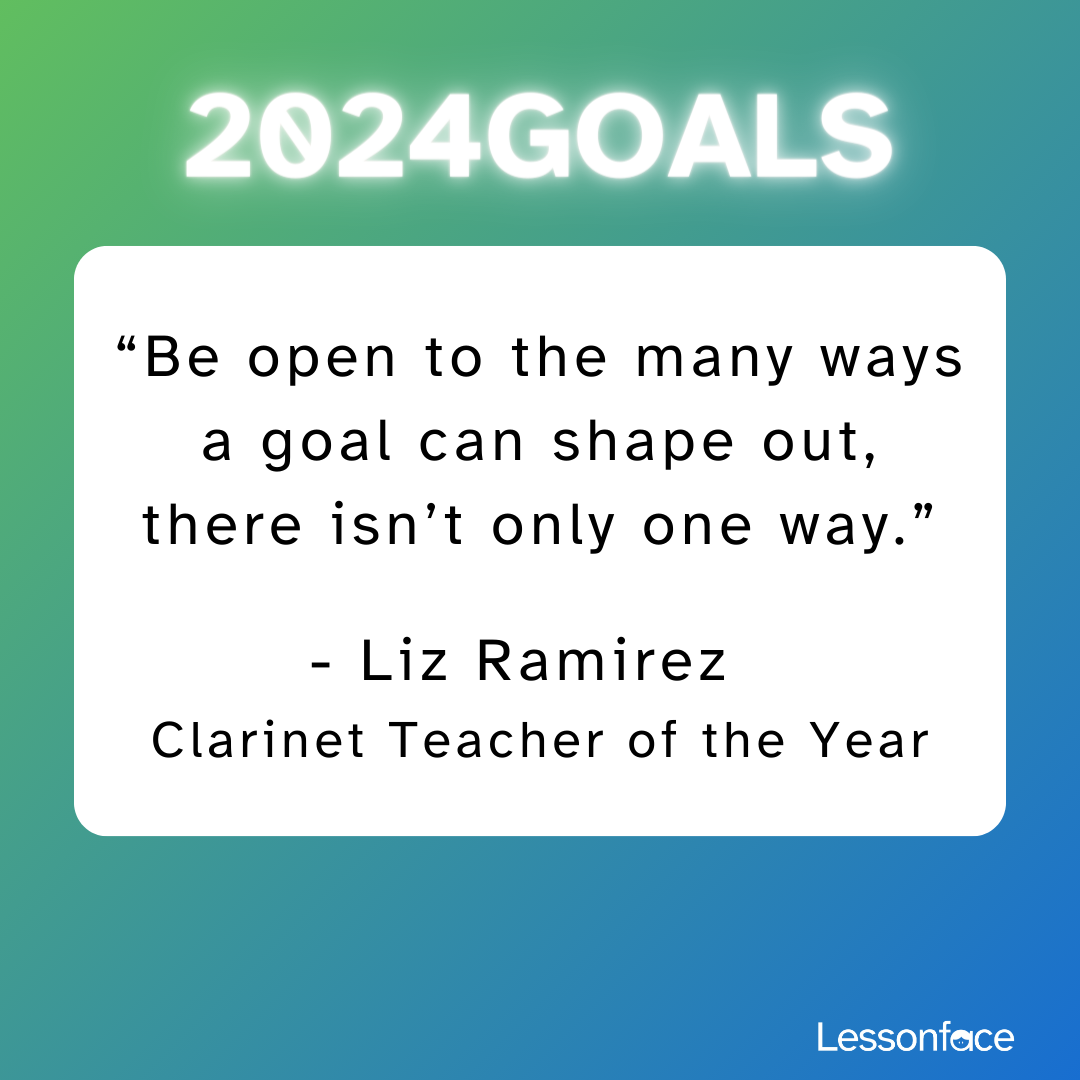Six Things to Keep In Mind When Setting Goals

Setting goals isn’t always easy! It can feel overwhelming to figure out the specifics needed to reach the potential we envision. Working with a great teacher can help, and, fortunately, these teachers all have some great advice on goal creation no matter your stage of learning.
1. Start where you are 
“One of my favorite homesteaders always encourages her students to 'turn their waiting room into their classroom.' I would like to encourage anyone looking to sign up for lessons to get going with what you have access to. While you wait to be in what would be your ideal situation for learning, why not get going using what you currently have access to? And what’s amazing about online lessons is that you can literally turn any space into your classroom. Be open to the many ways a goal can shape out, there isn’t only one way.”
2. Choose your kind of goal — essential goals or passion goals 
“When musicians make goals for their continued growth, I suggest they think about organizing them into two types.
A) One type is for goals centered around the essentials such as tone and technique, thinking about areas that they would like to feel more confident in and then making a list of specific things to work on within those areas.
B) The other type of goal should be to work on something that really strikes your interest in particular, because if you love it, you will likely work that much harder to achieve your goal. And if possible, it is even better if you can get the second type of goal to overlap with the first so you accomplish two things at once.
Here is an example from my own practice recently. I believe it is important that we never stop learning so I have been practicing some of the many world flutes out there and experimenting with techniques and styles new to me. But then when I go back to playing my concert flute, I find that my practice on those flutes has positively influenced my sound and I start to use some of the techniques and styles of playing from these other instruments and genres into my normal playing, therefore working on essentials for my normal flute practice and on my special interests at the same time.”
3. Make it measurable 
“Set a measurable, attainable goal that you are genuinely excited to achieve. No goal is too big or too small, it is just what you dream of accomplishing.”
4. Break it down into achievable steps
Ricardo Hernandez Cabrera, Trombone, Music Theory:
“My advice is that after setting that goal it is necessary to find someone who is able to help and propose steps in order to fulfill those goals.”
Elijah Bogdanov, Music Theory & Guitar: 
“Always remember - an achieved challenge (not a goal) is better than an unachieved one. But it shouldn't be a goal without a challenge. That's why you need to set your goals somewhere in the middle. Here’s a system with 3 levels of goals:
1. A vision - something in the end. And the more clear it gets the better your results are. What type of music do you want to play in 2 years, what's your audience? if it's just you - what for? for fun? for self-improvement? A clear vision will help you exclude false goals, you can't achieve an eternity.
2. A plan or objectives. It's simply a route from point A to point B. Some songs for future, some general skills you want to work on, to play a specific concert, maybe a recital at Lessonface.
3. Tasks. Something that you need to work on right now and for the near future. And you should always reassess them according to the plans and to your vision. The trick is to find the closest task. If you are trying to memorize a song and you can't , maybe you should go "closer" and try memorizing one part, or maybe 8 bars at a time? Or maybe there is something completely new for you so you need to focus on one bar. Or maybe you think that it's a memorization problem but maybe you don't know how to memorize notes or maybe a technique issue is in your way. You need to find the real problem that holds you back. And any teacher at Lessonface will help you find it.”
5. Be intentional with your practice 
“I think the most basic advice is to keep the practice regular, and to make sure each practice is fruitful. It's easy to practice mechanically, just to check it off our to-do list. But let's make sure that in each practice we're highly focused, so we're connecting with the music and getting the details better than before. That way we're making continual progress. Various goals will fall into place if the daily habits are strong.”
“Be very consistent and self disciplined in your daily piano practices. Also, you need to devise effective practice methods and strategies in them.
In addition, you need to persevere in putting your hard work over a very long period into your daily piano practices. Be patient with your progress but always aim for excellence in learning and have high expectations of yourself to achieve your respective learning goals.”
“Don't stop practicing, even if it's only 15 minutes a day! Listen to music and videos in Spanish, so you get used to the sounds of the language. Don't give up, you can do it!”
6. There’s more than one path to progress 
“Be open to the many ways a goal can shape out, there isn’t only one way.”
The January Snapshot Challenge
Recording yourself is a great way to see progress over time. Join the January Snapshot Challenge and give yourself a concrete way to watch your progress unfold!




